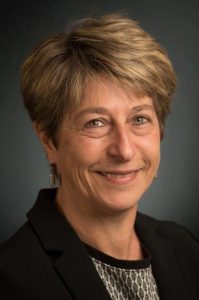Over the past year, eleven faculty from eight departments have received over $20,000 for individual and collaborative projects through development funds from the Dean’s Office of the College of Arts & Sciences.
“Development awards for faculty impact students as professors develop plans for courses that are state-of-the-art, creative, and innovative,” says Dean Elisabeth Mermann-Jozwiak. Such is the purpose of these awards, which include the Dean’s Faculty Development Fund, an award for Faculty in the Arts, and the Faculty and Student Research fund. All long-term and tenure-stream faculty are eligible to apply.
What follows is a small sample of faculty using the funding and how the awards are affecting undergraduates.
Dean’s Faculty Development Fund
Associate Professor of History Ann Ostendorf received two Faculty Development Awards over the past year, the first for an archival visit to Clayton Library Center for Genealogical Research in Houston, Texas to study Romani populations in colonial America. Her second award will cover the cost of research materials during an upcoming trip to the Maryland State Archives for further work on her manuscript, Gypsies and Roma: Perceptions and Realities in American Culture and History.
Though she does not teach a course on the subject, Ostendorf sees her research fitting perfectly with her teaching philosophy. “I frame all my teaching as to explain systems of power and injustice,” she says. “The story of the various Romani peoples who came to or were brought to the Americas has almost never been told.”
Faculty in the Arts Award
Truly bridging the arts and the sciences, Dance Program director Suzanne Ostersmith and Biology Professor Dr. Brook Swanson received a joint Faculty in the Arts Award for their collaboration in creating and teaching the First Year Seminar, “The Art and Science of Dance.” This past fall, Ostersmith and Swanson taught the course for the first time and raved about the results.
For the cumulative assessment, students worked in teams to express complex scientific problems through dance. “The students committed completely,” Ostersmith says, “and [they] created truly compelling work combining the fundamentals of dance with the science they had studied throughout the semester.” In course evaluations, students reported better retention and a deeper understanding of the material and its connections to other subjects.
Dean Mermann-Jozwiak echoes how important it is to “break down disciplinary silos,” given the complexity of modern problems. “It takes cross-disciplinary teams to creatively solve problems and to effect change,” she says.
Faculty and Student Research Fund

Assistant Professor Dr. Charles Lassiter
Reaching across another disciplinary aisle, Associate Professor of Psychology Dr. Vinai Norasakkunkit and Assistant Professor of Philosophy Dr. Charles Lassiter received an award from the Faculty and Student Research Fund for their proposal, “Can Marginalizing Situations Cause Culturally Deviant Behaviors?” In his previous research, Norasakkunkit had found that young people at risk of societal marginalization “tended to have values and motivational styles that deviated from what was culturally normative in their own societies.” The new collaborative project with Lassiter examines the causal direction between marginalizing situations and culturally deviant behavior.
This spring, twelve students will work with Norasakkunkit to collect data for the project, and he hopes some will present at the National Conference for Undergraduate Research in April. Several students may also help Lassiter refine the computer simulation method they will use to model their data. The professors are developing a cross-listed and co-taught philosophy and psychology course on the complex relationship between mind and society, which will also incorporate their methods and findings.
As Norasakkunkit says, “There is only so far each of us can go if we stick to what we know only within our own disciplines.”

